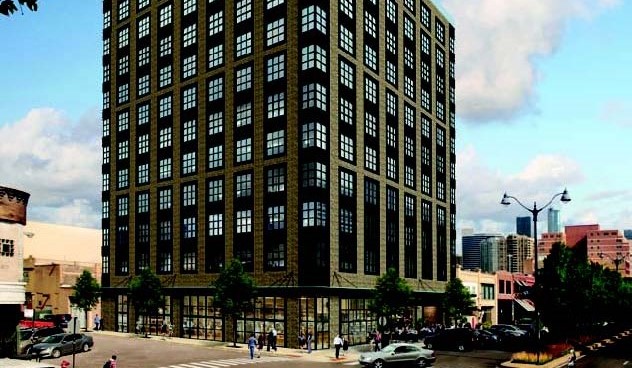
CHICAGO—Hotel owners and operators in the Chicago region had a fantastic 2015, including many lucrative sales, but even though this year looks strong as well, the sector has reached a plateau in terms of pricing. And part of the reason for that, along with the recent completion of thousands of new rooms, is the influence of Wall Street, according to Daniel G.M. Marre, partner, Perkins Coie LLP.
“When I first started working in the hospitality industry, it was not a business that had captured the attention of Wall Street,” he tells GlobeSt.com. “But now we have more hotel companies organized as public REITs,” and many big investors have decided to exit or moderate their stake in the industry, largely due to the decline in the growth in revenues.
Although that revenue growth remains quite healthy, in general Wall Street has decided to search for higher returns elsewhere. “My opinion is that we are on a sort of plateau at the top of a cycle,” says Marre, who helped handle three of the top five hotel deals in Chicago in 2015, including the Conrad Chicago, The Viceroy and the Nobu Hotel. “RevPAR growth in 2015 was just stellar, but this year it's growing at a slower pace, and Wall Street doesn't like that; so they have decided to pull back on some of the money.”
Furthermore, “for some operators, it might be a tough winter,” especially those in top markets like Chicago, New York, and Los Angeles, where they have to compete with sets of glittering new hotels. But assuming the economy does not experience any major disruptions over the next year or so, Marre expects “we will reach an equilibrium. I expect the hospitality industry to bump along much as it has been doing this year.”
If Marre has a worry about the health of Chicago-area hotels, it centers on the on-going budget fights that plague the state. Last year may have been a record year for tourism in the city, the source of so much hotel revenue, but the budgets for programs that promote tourism, such as Choose Chicago, have been slashed, he says.
Still, he remains optimistic about the sector's future. He now has two pieces of advice for his clients. One, “take the time to upgrade your product and enjoy the moderately good economy for as long as you can.” In addition, “don't build any more hotels in Chicago.”

CHICAGO—Hotel owners and operators in the Chicago region had a fantastic 2015, including many lucrative sales, but even though this year looks strong as well, the sector has reached a plateau in terms of pricing. And part of the reason for that, along with the recent completion of thousands of new rooms, is the influence of Wall Street, according to Daniel G.M. Marre, partner,
“When I first started working in the hospitality industry, it was not a business that had captured the attention of Wall Street,” he tells GlobeSt.com. “But now we have more hotel companies organized as public REITs,” and many big investors have decided to exit or moderate their stake in the industry, largely due to the decline in the growth in revenues.
Although that revenue growth remains quite healthy, in general Wall Street has decided to search for higher returns elsewhere. “My opinion is that we are on a sort of plateau at the top of a cycle,” says Marre, who helped handle three of the top five hotel deals in Chicago in 2015, including the Conrad Chicago, The Viceroy and the Nobu Hotel. “RevPAR growth in 2015 was just stellar, but this year it's growing at a slower pace, and Wall Street doesn't like that; so they have decided to pull back on some of the money.”
Furthermore, “for some operators, it might be a tough winter,” especially those in top markets like Chicago,
If Marre has a worry about the health of Chicago-area hotels, it centers on the on-going budget fights that plague the state. Last year may have been a record year for tourism in the city, the source of so much hotel revenue, but the budgets for programs that promote tourism, such as Choose Chicago, have been slashed, he says.
Still, he remains optimistic about the sector's future. He now has two pieces of advice for his clients. One, “take the time to upgrade your product and enjoy the moderately good economy for as long as you can.” In addition, “don't build any more hotels in Chicago.”
© Touchpoint Markets, All Rights Reserved. Request academic re-use from www.copyright.com. All other uses, submit a request to [email protected]. For more inforrmation visit Asset & Logo Licensing.








